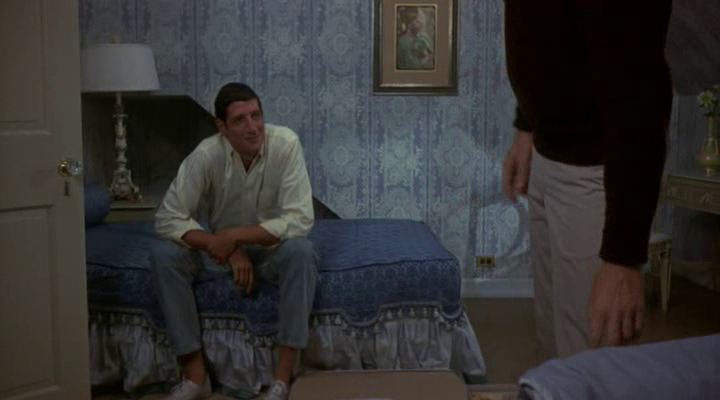Goodbye, Columbus (1969)
“If I let you kiss me, would you stop being so nasty?”
|
Synopsis: |
|
Genres, Themes, Actors, and Directors:
Review: We see plenty of romantic montage sequences set to a jazzy score; watch MacGraw’s family casually mistreating their Black housemaid (Royce Wallace): … see MacGraw’s younger sister Julie (Lori Shell) spoiled like crazy; observe how odd MacGraw’s soon-to-be-married brother Ron (Michael Meyers) is: … and get just a few glimpses of Benjamin’s chaotic lower-class life with his Aunt Gladys (Sylvia Strause). There’s not much else to it. This one is only must-see for fans of the book who are curious to see its (apparently quite faithful) transfer to the big screen. Notable Performances, Qualities, and Moments: Must See? Links: |





One thought on “Goodbye, Columbus (1969)”
(Rewatch 12/26/20.) A once-must, as a representative film of the ’60s.
‘GC’ is a well-observed example of culture / class-divide and a more-honest depiction of a relationship than, say, MacGraw’s lamentable follow-up ‘Love Story’. (‘GC’ also contains her most natural performance.) The dialogue is consistently sharp and the performances are nicely delineated, thanks to Larry Peerce’s direction.
I wouldn’t say that the film is meant to be “appealing” as much as accurate. I recall, when I saw this film on its release, being somewhat stunned by the harshness of the film’s final confrontation scene. Seeing it again, it still holds power.